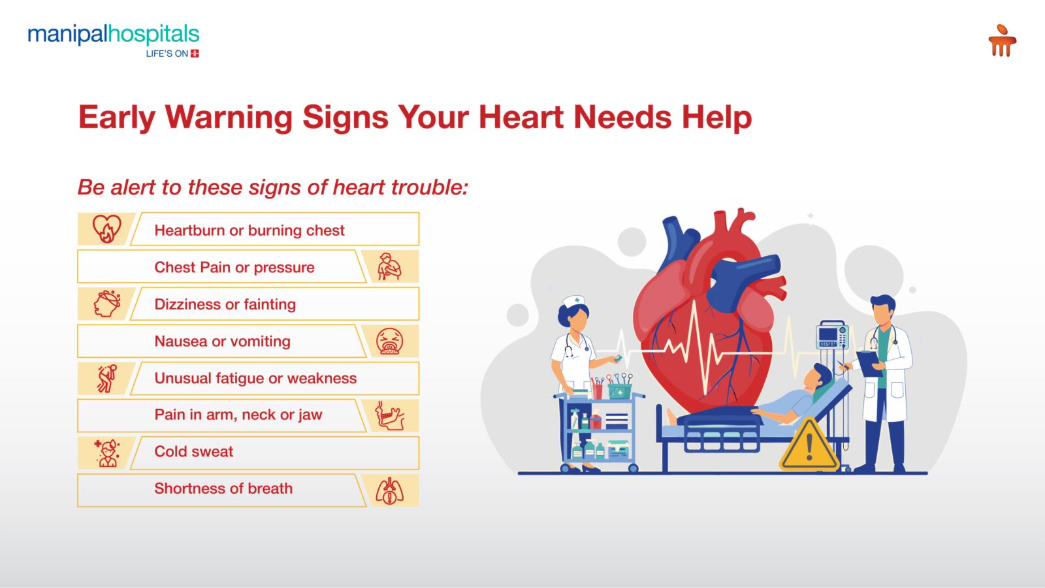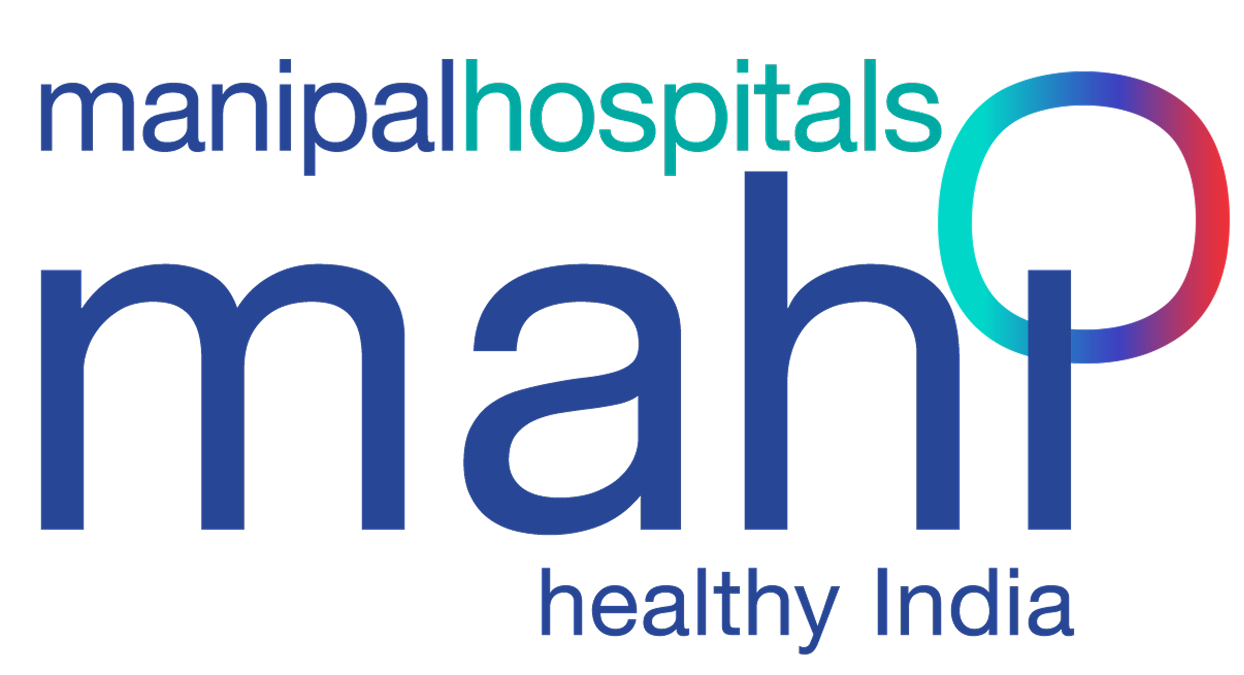
Heart problems are no longer an issue of old age. In India, an alarming number of young adults are developing cardiac diseases, even in their 20s and 30s. Reports show that one in every five cardiac patients is now below 40. Genetic risks, fast-paced lifestyles, and rising stress levels are driving this trend. Here’s why it’s happening and how you can spot the early signs of heart problems before it’s too late.
Synopsis
- Understanding heart problems in young adults
- Lifestyle factors contributing to heart problems in youth
- Common signs of heart problems to watch for
- Symptoms of heart problems in men: How do they differ from women?
- What is the best test to check for heart problems?
- Prevention and management of heart problems in young adults
- Conclusion
Understanding heart problems in young adults
The common heart problems seen in young adults are-
-
Coronary Artery Disease (CAD)/Heart Attacks: This is mainly caused by premature atherosclerosis, a condition in which plaque or fatty deposits build up in the arteries.
-
Arrhythmias: Any irregularity in the heart rhythm can be a result of conditions like Hypertrophic Cardiomyopathy (HCM) and can further lead to life-threatening complications.
-
Hypertrophic Cardiomyopathy (HCM): This is a genetic disorder that causes the heart muscle to thicken, making it harder for the heart to pump blood and leading to sudden cardiac death.
-
Myocarditis: This is another identified cause of sudden cardiac death in the young. This inflammation of the heart muscle is often caused by viral infections.
-
Coronary Artery Anomalies (CAAs): These congenital conditions (present from the time of birth) relate to any structural abnormality of the coronary arteries. These can restrict the blood flow, especially during physical activity, and lead to sudden cardiac death.
There could be several factors in combination with an unhealthy lifestyle that can fuel this rising trend-
-
Diabetes and hypertension: The increasing prevalence of high blood sugar and high blood pressure among the younger population is a major risk factor.
-
Obesity and high cholesterol: Mostly resulting from lifestyle choices and genetic predisposition, these conditions increase the risk of heart attacks by causing plaque or fatty deposits in the arteries.
-
Undiagnosed conditions: In many cases, underlying heart defects/conditions can remain unnoticed and undiagnosed in the young. The lack of regular check-ups, timely detection, and treatment weakens the heart over time.
-
Genetics: Premature Coronary Artery Disease is more common in Indians and South Asians due to higher genetic predisposition. The disease may also advance more rapidly, and blockages can be more severe compared to Western populations.
-
Environment: Pollution and poor air quality, especially in the metro cities, contribute significantly to the rising incidence of heart problems.

Lifestyle factors contributing to heart problems in youth
Other than existing medical conditions and environmental causes, there are several lifestyle factors contributing to heart problems in youth. Some common lifestyle choices triggering heart disorders are-
-
Poor diet: Processed or fast foods and an unhealthy diet that is high in trans fats, added sugar, and salt can lead to obesity, diabetes, and high cholesterol, causing damage to the blood vessels and resulting in heart disorders.
-
Obesity: Excessive body weight contributes to hypertension and high cholesterol. Together, these can lead to heart problems.
-
Sedentary lifestyle: Lack of physical activity, prolonged sitting, and long screen time can weaken the cardiovascular system over time.
-
Lack of sleep: Inadequate sleep can be a reason for high blood pressure and cardiac diseases.
-
Smoking: Use of tobacco can damage blood vessels and cause plaque build-up, thereby reducing oxygen supply to the blood.
-
Alcohol consumption: Excess intake of alcohol can raise blood pressure and cause a disease of the heart muscle known as cardiomyopathy.
-
Stress: Chronic stress, depression, and anxiety can trigger high blood pressure and inflammation, besides inducing unhealthy coping habits like poor diet or addiction to tobacco and alcohol.
Small daily choices from what you eat to how you manage stress play a key role in your cardiac health. This can either protect your heart or put it at risk.
Common signs of heart problems to watch for
Young adults should be aware of the early warning signs of heart problems to recognise them at the earliest and seek treatment on time. These may include-
-
Chest pain/discomfort: Feeling of pressure, fullness, or squeezing that may mimic indigestion.
-
Pain/discomfort in other areas: Pain that radiates from the chest to other areas, including the arm (especially left), neck, jaw, or upper back.
-
Shortness of breath: Difficulty in breathing even at rest that may be present with chest pain.
-
Irregular heartbeat: Palpitation or a racing heartbeat, a skipped heartbeat, or irregular rhythm.
-
Dizziness/light-headedness: Sudden loss of balance or feeling of fainting, caused by the reduced flow of blood to the brain.
-
Sweating: Profuse cold and clammy sweat without any exertion and accompanied by anxiety.
-
Fatigue: Extreme, persistent, and unexplained tiredness or weakness (especially in women).
-
Indigestion/nausea: Heartburn or feeling of sickness in the stomach that is not related to food.
-
Edema or swelling: Fluid accumulation in the feet, ankles, and legs can indicate the heart’s inability to pump blood properly.
-
Cough/wheezing: Cough or wheezing that is chronic and sometimes accompanied by pink or frothy mucus, indicating a fluid build-up in the lungs.
Symptoms of heart problems in men: How do they differ from women?
While the general symptoms of heart problems are similar in both men and women, there can be a few symptoms that are exclusive to either of them. Identifying these gender-specific symptoms of heart disease can help detect it easily and early. The symptoms that are distinct in men (but are absent or subtle in women) include-
-
Pronounced chest pain or discomfort
-
Shortness of breath at rest or minimal exertion
-
Unusual and severe fatigue
-
Nausea, vomiting, and indigestion
-
Pressure or pain in the lower chest or upper abdomen
-
Discomfort in the jaw, neck, or back
What is the best test to check for heart problems?
A cardiologist can advise several tests to detect suspected heart disease. While the initial screening might be generalised for all, some special tests are run on the indication of a specific disorder. A doctor may suggest-
General Screening
-
Electrocardiogram (ECG/EKG): Measures the heart’s electrical activity to detect arrhythmias or irregular heartbeats, and damage or enlargement of the heart muscle.
-
Echocardiogram (ECHO): An ultrasound that provides a structural view of the heart and its valves internally and measures its pumping capacity.
Specialised Tests
-
Blood tests: These can help identify risk factors like inflammation and high cholesterol, or biomarkers like ceramides, which are linked to atherosclerosis.
-
Exercise Stress Test: This can indicate a blockage by monitoring the blood pressure, heart rate, and breathing during exercise and identifying a reduced blood flow.
-
CT Coronary Angiography (CCTA): A scan that gives a detailed view of the heart and blood vessels to detect the presence of blockages in the coronary arteries.
Prevention and management of heart problems in young adults
Adopting heart-healthy habits and avoiding trigger factors are the keys to the prevention and management of heart problems in young adults.
|
Do’s |
Don’ts |
|
Eat a heart-healthy diet, including fruits, vegetables, whole grains, lean proteins, and healthy fats. |
Consume saturated and trans fats, or excess salt and sugar. |
|
Stay hydrated and sleep adequately (7-9 hours). |
Eat processed and fast foods frequently. |
|
Stay active for better circulation. |
Consume too much alcohol |
|
Maintain body weight by keeping Body Mass Index in a healthy range. |
Get addicted to smoking or vaping. |
|
Manage stress with relaxation techniques. |
Ignore signs and symptoms related to the heart. |
|
Check blood sugar, blood pressure, and cholesterol levels regularly. |
Rely on food supplements as a substitute for nutritious food. |
Conclusion
Heart problems among Indian youth are an emerging health concern influenced by lifestyle changes, increasing stress, unhealthy dietary habits, and lack of physical activity. Early onset of conditions like hypertension, obesity, and diabetes also elevates the risk of heart disease at an earlier age. Raising awareness, promoting healthy lifestyles, and early screening are crucial to prevent the growing burden of heart issues among young Indians.
Are you experiencing cardiac symptoms? Do you think your dear one needs a heart check-up? Is there a family history of heart attack running in your family? Reach out to the Department of Cardiology at Manipal Hospitals. With cutting-edge technology, an experienced team of specialists, 24x7 emergency services, and multidisciplinary critical care facilities, they provide prompt and world-class cardiac solutions for all ages.
FAQ's
Poor sleep quality and sleep disorders like sleep apnoea can increase the risk of heart problems in young adults by affecting blood pressure and causing inflammation in the body.
Yes, young adults are more commonly affected by conditions like arrhythmias, congenital heart defects, myocarditis, and early-onset coronary artery disease. These can arise from genetics, infections, or lifestyle factors.
Yes. While regular exercise benefits heart health, intense or excessive workouts can sometimes trigger heart problems in young adults, especially if there’s an underlying condition. It’s important to get medical advice before starting high-intensity training.
Yes, pregnancy puts extra strain on the heart and circulatory system. Conditions like pregnancy-induced hypertension or cardiomyopathy can develop, increasing heart risks. Regular monitoring during pregnancy is essential to protect both the mother’s and the baby’s heart health.
Yes, frequent panic attacks can elevate heart rate and blood pressure, putting strain on the cardiovascular system over time. Chronic stress and anxiety may increase the risk of developing heart-related issues.






















 8 Min Read
8 Min Read








.png)






